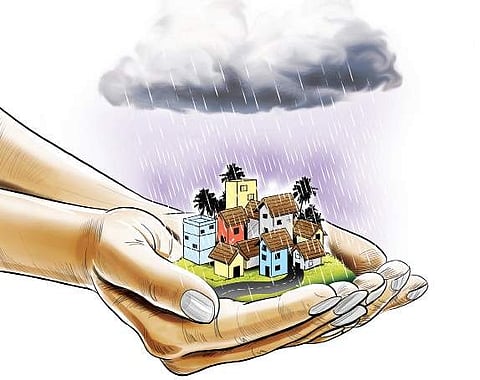

HYDERABAD: To recharge depleting groundwater table and prevent rainwater from going into storm water drains, Rain Water Harvesting Structures (RWHS) have been made mandatory for all houses in the city. From January 2025, houses that do not comply will be charged double for water tankers.
The timeline fixed to implement these measures is from October to December, 2024, with a special drive by the Hyderabad Metropolitan Water Supply and Sewerage Board (HMWSSB) starting on October 2.
The Water Board will gather data on water tanker users from February to May, targeting those households to ensure RWHS construction.
Eighteen NGOs will assist in surveying which homes have RWHS pits, focusing on residences of 300 sq yards and above, entering the data into a dedicated app.
Offices to issue advisories for construction, repair of RWHS pits
Due to rapid urban development, rainwater is not soaking into the ground, leading to significant groundwater depletion.
Summer this year saw many borewells go dry, increasing reliance of residents on water tankers and necessitating emergency pumping from Krishna and Godavari reservoirs.
To combat this, HMWSSB Managing Director K Ashok Reddy has developed an action plan to recharge the groundwater table. Based on data from the app, divisional offices will issue advisories for construction, repair and maintenance of RWHS pits.
Ashok Reddy emphasised the importance of RWHS and plans to educate the public and its consumers about its benefits. Since December 2022, the Water Board has provided 20,000 litres of free drinking water to domestic households, encouraging consumers to invest such savings in RWHS construction.
A survey on RWHS status, targeting households with plot areas of 300 sq. metres and above, is ongoing. As of September 18, 2024, 42,784 houses were targeted, with surveys completed for 25,578. Of these, 12,446 had RWHS pits, while 13,132 did not. HMWSSB is offering technical guidance from qualified geologists to those without RWHS pits.